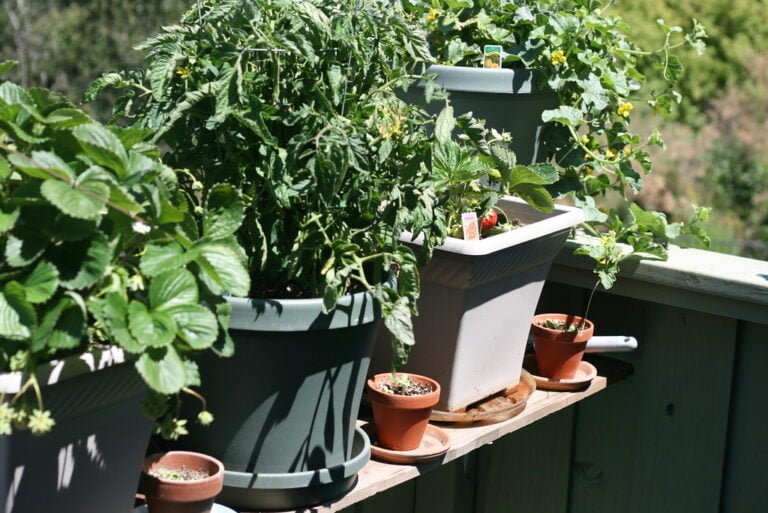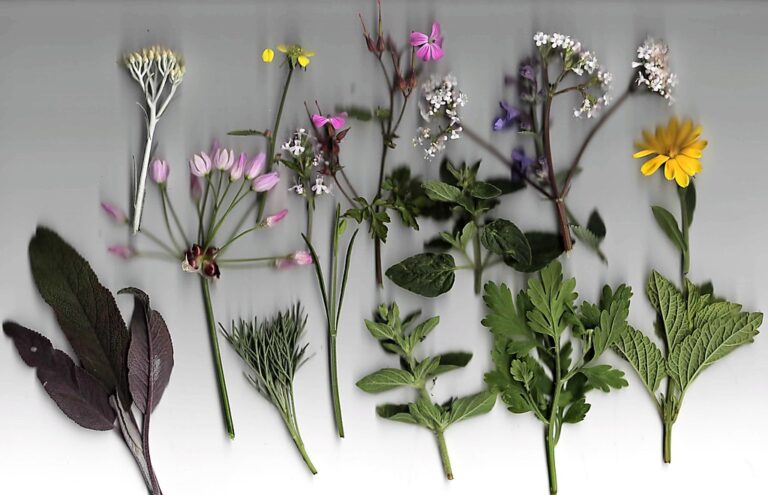Understanding the Benefits of Companion Planting With Yarrow
Are you looking to maximize the health and yield of your garden? Discover the benefits of companion planting with yarrow. This ancient practice involves strategically placing plants together to enhance their growth and deter pests. With yarrow as your companion, you'll experience the added benefits of pest control, improved soil fertility, and enhanced pollination. Say goodbye to common garden pests and hello to a thriving garden. Let yarrow be your partner in creating a bountiful and beautiful garden space.
What Is Companion Planting
Companion planting involves strategically placing certain plants together to enhance each other's growth and repel pests, resulting in a more productive and environmentally-friendly garden. By understanding the benefits of companion planting, you can create a harmonious and thriving garden that serves your needs. When selecting plants to companion plant, it's important to consider their compatibility. Some plants have natural abilities to repel pests, while others enrich the soil or provide shade. For example, planting yarrow alongside vegetables like tomatoes or peppers can help repel harmful insects and attract beneficial ones. Additionally, yarrow's deep roots can improve soil structure and nutrient availability for neighboring plants. By practicing companion planting, you can maximize your garden's potential, reduce the need for chemical pesticides, and create a sustainable and bountiful garden for yourself and others to enjoy.
The Role of Yarrow in Companion Planting
When incorporating yarrow into your companion planting strategy, it plays a crucial role in enhancing the growth of neighboring plants and repelling pests. Yarrow, a flowering herb with feathery leaves and clusters of small flowers, is known for its ability to attract beneficial insects like ladybugs and lacewings, which are natural predators of garden pests. By attracting these beneficial insects, yarrow helps to keep your garden free from harmful pests without the need for chemical pesticides. Additionally, yarrow has a strong scent that repels many common garden pests, including aphids, beetles, and mosquitoes. This makes it an excellent companion plant for vegetables, herbs, and flowers, as it helps to protect them from potential damage. So, when planning your companion planting strategy, be sure to include yarrow to promote healthy growth and deter pests.
Pest Control Benefits of Companion Planting With Yarrow
To maximize the pest control benefits of companion planting with yarrow, incorporate this flowering herb strategically throughout your garden beds. Yarrow is known for its ability to repel pests and attract beneficial insects, making it an excellent addition to any pest management strategy. Planting yarrow near crops that are susceptible to aphids, such as tomatoes or lettuce, can help deter these pests and reduce the need for chemical pesticides. Yarrow's strong scent also repels other common garden pests like mosquitoes and flies. Additionally, yarrow attracts beneficial insects like ladybugs and lacewings, which feed on aphids and other harmful pests. By planting yarrow alongside your vegetables and flowers, you can create a natural and effective pest control system that promotes a healthy and balanced garden ecosystem.
Enhancing Soil Fertility With Yarrow Companion Planting
For optimal soil fertility, incorporate yarrow companion planting strategically throughout your garden beds. Yarrow is a powerful plant that can greatly enhance the health and productivity of your soil. When planted alongside other crops, it helps to improve the nutrient levels in the soil by accumulating minerals and trace elements. Additionally, yarrow's deep roots break up compacted soil, allowing for better water and nutrient absorption by surrounding plants. This plant also attracts beneficial insects, such as ladybugs and lacewings, which help control pests and pollinate your garden. To maximize the benefits of yarrow companion planting, consider interplanting it with vegetables or herbs that have similar soil requirements. By doing so, you'll create a harmonious ecosystem that promotes soil fertility and overall plant health.
Improving Pollination With Yarrow as a Companion Plant
To further enhance the benefits of yarrow companion planting, you can rely on its ability to improve pollination in your garden. Yarrow is known to attract beneficial insects such as bees and butterflies, which play a crucial role in the pollination process. By planting yarrow alongside your other crops, you create a favorable environment for these pollinators, increasing the chances of successful pollination and ultimately leading to better yields. The vibrant flowers of yarrow act as a beacon, drawing in these important insects and encouraging them to visit your garden. Additionally, yarrow's ability to attract hoverflies, which are natural predators of aphids, can help control pest populations that could otherwise harm your plants. By incorporating yarrow into your companion planting strategy, you not only improve pollination but also contribute to a healthier and more balanced garden ecosystem.
Yarrow's Ability to Attract Beneficial Insects
Maximize the benefits of companion planting with yarrow by harnessing its ability to draw in and attract beneficial insects. Yarrow is a powerful ally in your garden, as it attracts a wide variety of beneficial insects that help control pests and improve overall plant health. By planting yarrow alongside your other crops, you create a welcoming environment for these beneficial insects, such as ladybugs, lacewings, and hoverflies. These insects are natural predators of common garden pests like aphids, mites, and caterpillars, and they can significantly reduce the need for harmful pesticides. Yarrow's attractive, aromatic flowers and nectar-rich blooms act as magnets, attracting these helpful insects and encouraging them to stay in your garden. So, let yarrow work its magic and watch as your garden thrives with the help of these beneficial allies.
Companion Planting to Deter Common Garden Pests
Incorporate yarrow into your companion planting strategy to naturally deter common garden pests. Yarrow is known for its ability to repel insects and protect your plants from damage. By planting yarrow alongside your vegetables or flowers, you can create a pest-free environment without the use of harmful chemicals.
Yarrow's strong scent acts as a natural deterrent for many pests, including aphids, beetles, and mosquitoes. These pests are repelled by the aroma and will avoid your garden, keeping your plants safe and healthy. Additionally, yarrow attracts beneficial insects like ladybugs and lacewings, which feed on harmful pests and help maintain a balanced ecosystem in your garden.
To maximize the benefits of companion planting with yarrow, interplant it with susceptible crops or create borders around your garden beds. This will create a barrier that pests are less likely to cross. Remember to regularly trim and deadhead yarrow to promote continuous growth and pest-repelling properties.
Yarrow's Contribution to Weed Suppression
Yarrow contributes to weed suppression by naturally inhibiting the growth of unwanted plants in your garden. This versatile herb releases chemicals into the soil that deter the germination and growth of various weed species. By planting yarrow alongside your other crops, you can create a natural barrier against weeds, reducing the need for chemical herbicides and manual weeding. Yarrow's dense foliage also shades the soil, preventing sunlight from reaching weed seeds and hindering their growth. Additionally, yarrow's strong root system competes with weeds for nutrients and water, further discouraging their growth. To maximize yarrow's weed-suppressing effects, plant it in between rows or as a border around your garden. With yarrow as your companion, you can enjoy a weed-free garden without harming the environment or spending countless hours pulling weeds.
Maximizing Space and Yield With Yarrow Companion Planting
To make the most of your garden space and increase your crop yield, consider incorporating yarrow as a companion plant. Yarrow is a versatile herb that can be planted alongside various vegetables and flowers. Its compact size allows it to fit well in small garden spaces, making it an ideal choice for maximizing limited areas. Yarrow's ability to attract beneficial insects, such as ladybugs and predatory wasps, can help control pests and improve pollination, leading to higher yields. Additionally, yarrow's deep root system helps improve soil structure and nutrient uptake for surrounding plants, further enhancing their growth and productivity. By strategically planting yarrow throughout your garden, you can create a harmonious and productive ecosystem that maximizes space and increases your crop yield.
Successful Plant Combinations With Yarrow in Companion Planting
You can achieve successful plant combinations when incorporating yarrow in companion planting. Yarrow is a versatile plant that can benefit a wide variety of other plants in your garden. One successful combination is planting yarrow with vegetables such as tomatoes, peppers, and cucumbers. Yarrow helps repel harmful pests and attracts beneficial insects, which can improve the overall health and productivity of your vegetable plants. Another great combination is yarrow with herbs like lavender, sage, and thyme. Yarrow's strong scent can help mask the scent of these herbs, making them less attractive to pests. Additionally, yarrow's deep roots can help improve soil structure and nutrient uptake for neighboring plants. By strategically planning your garden and incorporating yarrow, you can create a harmonious environment that supports the growth and success of your plants.
Conclusion
In conclusion, companion planting with yarrow offers numerous benefits for your garden. Not only does it help control pests and enhance soil fertility, but it also improves pollination and deters common garden pests. Yarrow's ability to suppress weeds and maximize space and yield make it a valuable addition to any garden. By incorporating yarrow into your companion planting strategy, you can create a thriving and productive garden that will bring you joy and abundance.






